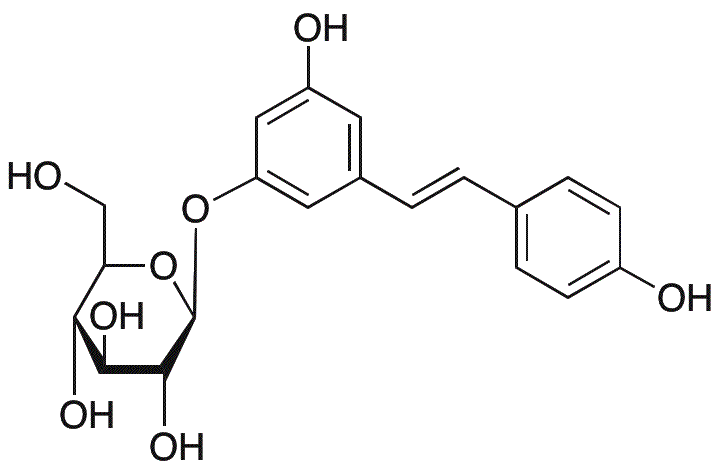Polydatin is widely utilized in research focused on:
- Natural Health Products: Known for its antioxidant properties, Polydatin is often used in dietary supplements aimed at promoting heart health and reducing inflammation.
- Pharmaceuticals: It has potential applications in drug formulations for its ability to enhance the efficacy of certain medications, particularly in treating cardiovascular diseases.
- Cosmetics: Due to its skin-protective effects, Polydatin is incorporated into skincare products to help combat signs of aging and improve skin texture.
- Food Industry: As a natural preservative, it is used in food products to extend shelf life and maintain quality, appealing to health-conscious consumers.
- Research Studies: Frequently studied for its neuroprotective effects, Polydatin is a subject of interest in research related to neurodegenerative diseases, offering insights into potential therapeutic strategies.
General Information
Properties
Safety and Regulations
Applications
Polydatin is widely utilized in research focused on:
- Natural Health Products: Known for its antioxidant properties, Polydatin is often used in dietary supplements aimed at promoting heart health and reducing inflammation.
- Pharmaceuticals: It has potential applications in drug formulations for its ability to enhance the efficacy of certain medications, particularly in treating cardiovascular diseases.
- Cosmetics: Due to its skin-protective effects, Polydatin is incorporated into skincare products to help combat signs of aging and improve skin texture.
- Food Industry: As a natural preservative, it is used in food products to extend shelf life and maintain quality, appealing to health-conscious consumers.
- Research Studies: Frequently studied for its neuroprotective effects, Polydatin is a subject of interest in research related to neurodegenerative diseases, offering insights into potential therapeutic strategies.
Documents
Safety Data Sheets (SDS)
The SDS provides comprehensive safety information on handling, storage, and disposal of the product.
Product Specification (PS)
The PS provides a comprehensive breakdown of the product’s properties, including chemical composition, physical state, purity, and storage requirements. It also details acceptable quality ranges and the product's intended applications.
Certificates of Analysis (COA)
Search for Certificates of Analysis (COA) by entering the products Lot Number. Lot and Batch Numbers can be found on a product’s label following the words ‘Lot’ or ‘Batch’.
Numéro de catalogue
Numéro de lot/série
Certificates Of Origin (COO)
This COO confirms the country where the product was manufactured, and also details the materials and components used in it and whether it is derived from natural, synthetic, or other specific sources. This certificate may be required for customs, trade, and regulatory compliance.
Numéro de catalogue
Numéro de lot/série
Safety Data Sheets (SDS)
The SDS provides comprehensive safety information on handling, storage, and disposal of the product.
DownloadProduct Specification (PS)
The PS provides a comprehensive breakdown of the product’s properties, including chemical composition, physical state, purity, and storage requirements. It also details acceptable quality ranges and the product's intended applications.
DownloadCertificates of Analysis (COA)
Search for Certificates of Analysis (COA) by entering the products Lot Number. Lot and Batch Numbers can be found on a product’s label following the words ‘Lot’ or ‘Batch’.
Numéro de catalogue
Numéro de lot/série
Certificates Of Origin (COO)
This COO confirms the country where the product was manufactured, and also details the materials and components used in it and whether it is derived from natural, synthetic, or other specific sources. This certificate may be required for customs, trade, and regulatory compliance.


